Chloroacetyl chloride
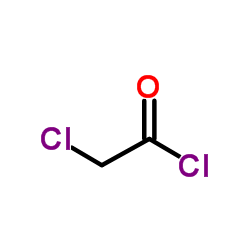
Chloroacetyl chloride structure
|
Common Name | Chloroacetyl chloride | ||
|---|---|---|---|---|
| CAS Number | 79-04-9 | Molecular Weight | 112.943 | |
| Density | 1.4±0.1 g/cm3 | Boiling Point | 106.0±0.0 °C at 760 mmHg | |
| Molecular Formula | C2H2Cl2O | Melting Point | −22 °C(lit.) | |
| MSDS | Chinese USA | Flash Point | 34.0±20.2 °C | |
| Symbol |




GHS05, GHS06, GHS08, GHS09 |
Signal Word | Danger | |
| Name | Chloroacetyl chloride |
|---|---|
| Synonym | More Synonyms |
| Density | 1.4±0.1 g/cm3 |
|---|---|
| Boiling Point | 106.0±0.0 °C at 760 mmHg |
| Melting Point | −22 °C(lit.) |
| Molecular Formula | C2H2Cl2O |
| Molecular Weight | 112.943 |
| Flash Point | 34.0±20.2 °C |
| Exact Mass | 111.948273 |
| PSA | 17.07000 |
| LogP | 0.69 |
| Vapour density | 3.9 (vs air) |
| Vapour Pressure | 28.8±0.2 mmHg at 25°C |
| Index of Refraction | 1.430 |
| InChIKey | VGCXGMAHQTYDJK-UHFFFAOYSA-N |
| SMILES | O=C(Cl)CCl |
| Stability | Stable. Incompatible with strong bases, alcohols, strong oxidizing agents. May react violently on exposure to water or moisture. |
| Water Solubility | reacts |
| Freezing Point | -22.5℃ |
CHEMICAL IDENTIFICATION
HEALTH HAZARD DATAACUTE TOXICITY DATA
|
| Symbol |




GHS05, GHS06, GHS08, GHS09 |
|---|---|
| Signal Word | Danger |
| Hazard Statements | H301 + H311 + H331-H314-H372-H400 |
| Supplemental HS | Contact with water liberates toxic gas., Reacts violently with water. |
| Precautionary Statements | P261-P273-P280-P301 + P310-P305 + P351 + P338-P310 |
| Personal Protective Equipment | Faceshields;full-face respirator (US);Gloves;Goggles;multi-purpose combination respirator cartridge (US);type ABEK (EN14387) respirator filter |
| Hazard Codes | C:Corrosive |
| Risk Phrases | R14;R23/24/25;R35;R48/23;R50 |
| Safety Phrases | S9-S26-S36/37/39-S45-S61-S7/8 |
| RIDADR | UN 1752 6.1/PG 1 |
| WGK Germany | 3 |
| RTECS | AO6475000 |
| Packaging Group | I |
| Hazard Class | 6.1 |
| HS Code | 2915900090 |
| Precursor 8 | |
|---|---|
| DownStream 10 | |

| HS Code | 2915900090 |
|---|---|
| Summary | 2915900090 other saturated acyclic monocarboxylic acids and their anhydrides, halides, peroxides and peroxyacids; their halogenated, sulphonated, nitrated or nitrosated derivatives VAT:17.0% Tax rebate rate:9.0% Supervision conditions:AB(certificate of inspection for goods inward,certificate of inspection for goods outward) MFN tariff:5.5% General tariff:30.0% |
|
Comparative evaluation of Bis(thiosemicarbazone)- Biotin and Met-ac-TE3A for tumor imaging.
Spectrochim. Acta. A. Mol. Biomol. Spectrosc. 153 , 566-71, (2015) 2,2',2″-(11-(2-((4-mercapto-1-methoxy-1-oxobutan-2-yl)amino)-2-oxoethyl)-1,4,8,11-tetraaza cyclotetradecane-1,4,8-triyl)triacetic acid, Met-ac-TE3A and (E)-N-methyl-2-((E)-3-(2-(2-(5-((3aS,4S,6aR)-2-o... |
|
|
New hydrazines with sulphonamidic structure: synthesis,characterization and biological activity.
Rev. Med. Chir. Soc. Med. Nat. Iasi. 117(1) , 238-43, (2013) Infections caused by bacterial species are common in immunocompromised patients and carry significant treatment costs and mortality. The emerging resistance of microorganisms to some synthetic antimic... |
|
|
Cysteine cyclic pyrrole-imidazole polyamide for sequence-specific recognition in the DNA minor groove.
J. Am. Chem. Soc. 133(46) , 18924-30, (2011) Pyrrole-imidazole (PI) polyamides are small DNA-binding molecules that can recognize predetermined DNA sequences with high affinity and specificity. Hairpin PI polyamides have been studied intensively... |
| MFCD00000725 |
| CHLOROACETYL CHLORIDE FOR PHARMA SYNTHESIS |
| CHLORO ACETYL CHLORIDE |
| Chloroacetylchloride |
| EINECS 201-171-6 |
| ACETYL CHLORIDE,2-CHLORO- |
| CHLORACETYLCHLORIDE |
| CHLORACETYL CHLORIDE |
| CHLORO ACETYL CHLORIDE (CAC) |
| CHLOROACETIC CHLORIDE |
| 2-chloroacetyl chloride |
| CHLORACETYLCHLORID |
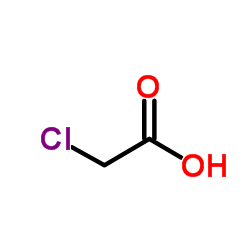 CAS#:79-11-8
CAS#:79-11-8 CAS#:463-51-4
CAS#:463-51-4 CAS#:75-44-5
CAS#:75-44-5 CAS#:98-07-7
CAS#:98-07-7 CAS#:27843-27-2
CAS#:27843-27-2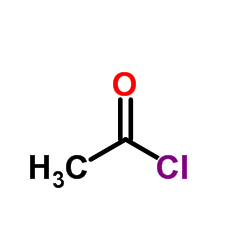 CAS#:75-36-5
CAS#:75-36-5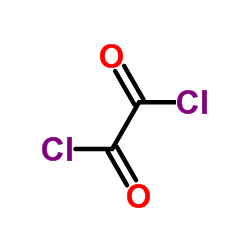 CAS#:79-37-8
CAS#:79-37-8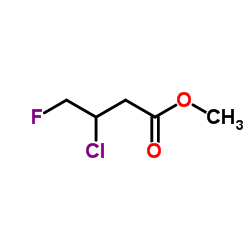 CAS#:541-88-8
CAS#:541-88-8![5-CHLORO-2-(CHLOROMETHYL)BENZO[D]THIAZOLE structure](https://image.chemsrc.com/caspic/292/110704-19-3.png) CAS#:110704-19-3
CAS#:110704-19-3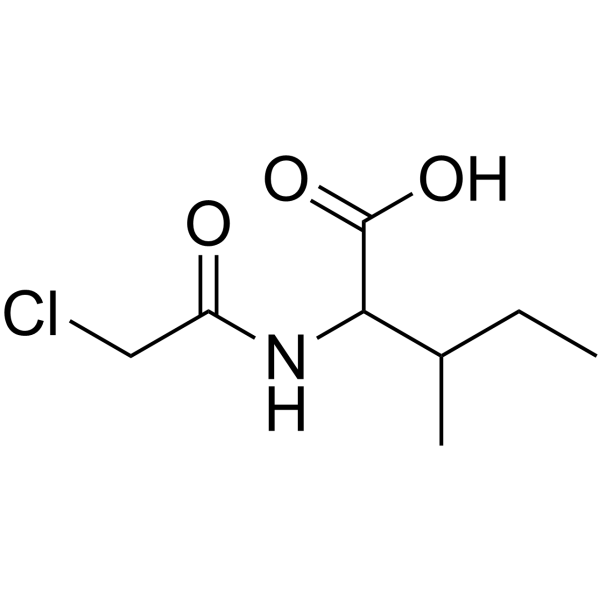 CAS#:1115-24-8
CAS#:1115-24-8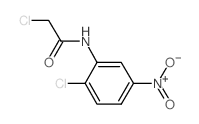 CAS#:108086-37-9
CAS#:108086-37-9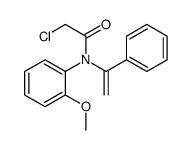 CAS#:106700-04-3
CAS#:106700-04-3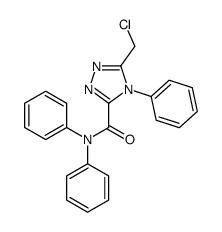 CAS#:109348-25-6
CAS#:109348-25-6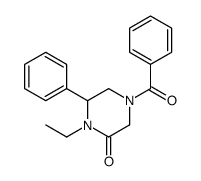 CAS#:107235-74-5
CAS#:107235-74-5![2-chloro-N-[3-[3-(piperidin-1-ylmethyl)phenoxy]propyl]acetamide structure](https://image.chemsrc.com/caspic/322/108441-34-5.png) CAS#:108441-34-5
CAS#:108441-34-5 CAS#:109607-24-1
CAS#:109607-24-1![2-CHLORO-N-{4-[(1,3-THIAZOL-2-YLAMINO)SULFONYL]PHENYL}ACETAMIDE structure](https://image.chemsrc.com/caspic/057/104246-27-7.png) CAS#:104246-27-7
CAS#:104246-27-7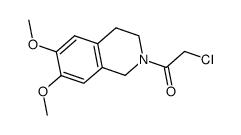 CAS#:111631-72-2
CAS#:111631-72-2
